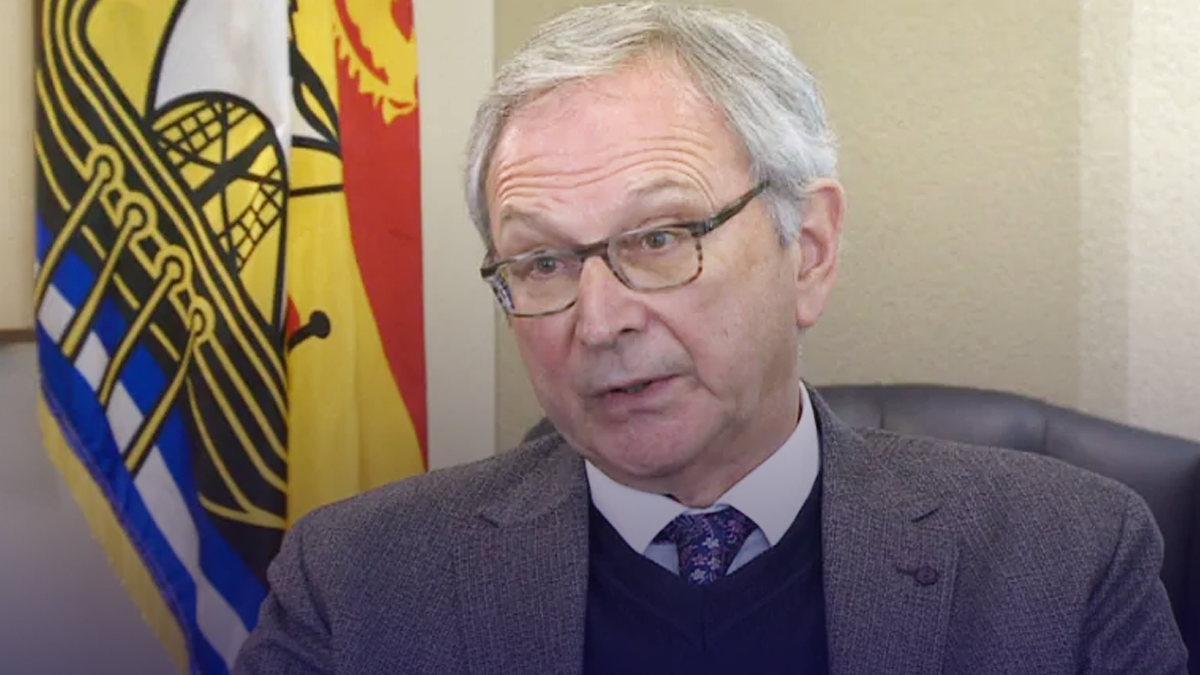While it is a provincial jurisdiction, Independent New Brunswick Senator Rene Cormier has waded into changes to his province’s policy on gender identity in schools, stating it is the duty of all Parliamentarians to ensure Charter rights are protected.
It’s a political hornet’s nest.
As New Brunswick Premier Blaine Higgs spoke in the legislature Thursday about his conviction that gender dysphoria has become “trendy,” and that increased acceptance of it is hurting kids and excluding parents, cabinet minister Dorothy Shephard got up and left the chamber.
Then she took her nameplate off of her desk, put it in her purse and handed the Progressive Conservative premier a hand-written, two-sentence letter of resignation from her post as social development minister.
She returned to vote with five of her colleagues for an opposition motion against Higgs’s wishes.
Higgs, thus far, is standing his ground, maintaining his support of the changes his government has made to Policy 713, which was designed to protect LGBTQ students, despite rising tensions in the legislature.
In an interview on CBC’s Rosemary Barton Live, Higgs said he is trying to “find a path forward” in regard to managing the changes, but backpedalled on a statement he made on June 8, when he said he was willing to call an election on the issue.
“I don’t want to go to an election and that isn’t my intent to do that,” he said.
The morning after that drama in the legislature, Shephard told Information Morning Saint John that Higgs said to her, “Well, it’s good to get it in early.”
“That was his response, and I’ll never forget it.”
The premier’s rhetoric about the review of the education policy meant to protect LGBTQ students — an issue she described as “mismanaged” — may have been the last straw for her, but she said it came after years of trying to work under Higgs’s “difficult” leadership.
Shephard is the third minister to resign from cabinet.
Shephard said she’s been struggling with his leadership style since the beginning — Higgs has been premier since 2018 — but especially since October 2021.
That month, she sent a six-page letter to Higgs airing her concerns about his unilateral decision-making. She said they didn’t meet to talk about the letter until January, and even then, she didn’t feel they got anywhere.
“I can’t say that there was anything productive that came out of it,” she said. “But Policy 713 became a beachhead.”
The policy now makes it mandatory to get parental consent to use a child’s chosen name and pronoun even informally in class.
If it is not possible to obtain parental consent, students seeking to have their names or pronouns changed will be directed to a school psychologist, or guidance counsellor to develop a plan to speak with their parents “if and when they are ready to do so.”
The entire review process and the results have been criticized by many, including the child and youth advocate, the New Brunswick Association of School Psychologists and the Canadian Civil Liberties Association.
Sen, Cormier, who is currently co-chair of the Pride Caucus, told The Hill Times on June 12 that as Parliamentarians, ensuring that minority rights are protected is “not an option, it’s a duty.”
Speaking from his own experience grappling with his sexual identity as a young student, Cormier said that it can be a “difficult path” for a young person to understand “who they are and who they want to be,” adding that when a child is not comfortable discussing that identity with their parent, that should be respected.
“Sometimes school is the only place where a student can find comfort talking about it,” Cormier continued, noting that younger Canadians who identify as part of the LGBTQ2S+ minority are already at a disproportionate risk of adverse mental health conditions and suicidal thoughts.
